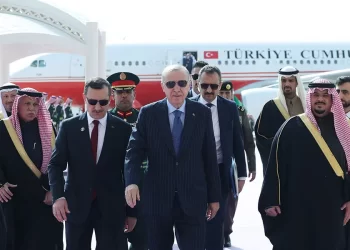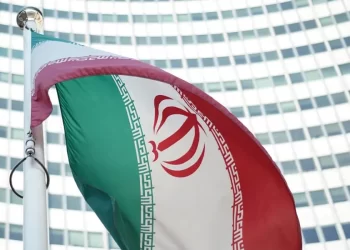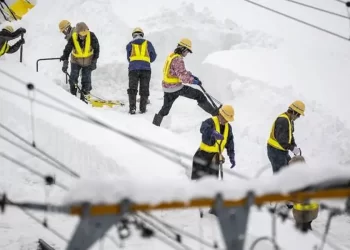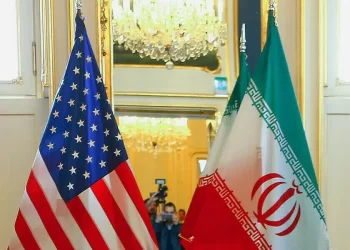MULLAITIVU, Sri Lanka (news agencies) — At the site of a bloody battlefield that marked the end of Sri Lanka’s civil war, Singaram Soosaimuthu fishes every day with his son, casting nets and reeling them in.
It is a skill he has known for much of his life — and one that he had to relearn after a devastating injury. The former Tamil fighter lost both legs in 2009 as the nation’s generation-long civil war drew to a close and the Tamils retreated in defeat.
Making something of himself despite his injuries brought Soosaimuthu success — an achievement in which he finds profound meaning. He sees his fellow ethnic Tamils in the same light: To regain their voice, they must thrive.
But defeat — bloody, protracted and decisive — has brought Sri Lanka’s minority Tamil community to a point of despair.
Some parents have given up hope of ever learning the fate of the thousands of missing children. Parts of the Tamil lands are decimated, with poor infrastructure and fewer economic opportunities. Survivors have lived under surveillance for years, and many now feel that members of the rising generation have grown too fearful and apathetic toward speaking up for their rights.
“There is a clear agenda underway to degenerate a defeated community,” says Selvin Ireneus, a social activist based in Jaffna, the Tamils’ northern cultural heartland.
The government, he says, doesn’t want today’s Tamils to be politically evolved. After fighting ended, he asserts, narcotics and other vices have been systematically introduced into the region. “They only want them to eat, drink and enjoy and not have a political ideology,” Ireneus said. “This has happened with all defeated communities in the world.”
The island nation of 20 million is overwhelmingly ethnically Sinhalese, with the Tamil community making up about 11% of the population. The separatist civil war broke out in 1983 after years of failed attempts to share power within a unified country, with Tamil fighters — known as the Liberation Tigers of Tamil Eelam, or simply the Tamil Tigers — eventually creating a de facto independent homeland in the country’s north.
The group was crushed in a 2009 government offensive. The war killed at least 100,000 on both sides, and left many more missing.
Though not all Tamils were part of or supported the Tamil Tiger rebel group, their defeat has effectively become a political defeat to the community. They have lost their bargaining power.
“What is remaining now is a very small community, and they don’t have the courage … to show dissent,” says K.T. Ganeshalingam, head of political science at the University of Jaffna.
Sri Lanka’s government had promised the United Nations and countries like India and the United States that they would share power with the Tamil-majority areas to resolve the causes that led to the civil war. However, successive governments have not followed up.
Fifteen years on, some in Tamil areas are still in denial that the armed campaign has been defeated and that the rebel leader Velupillai Prabhakaran, who was seen as invincible, has been killed. Sections of the expatriate Tamils in Europe have been claiming that Prabhakaran would return soon to take on the campaign to the next stage, including a woman who claims to be his daughter and is said to be collecting donations in his name.
Prabhakaran’s nephew in Denmark, Karthic Manoharan, says the time has come to put a stop to the rumors and state, emphatically, that the leader is dead.
“We don’t have any doubt regarding (his death) because he loved his country so much. And he’s not a coward to run from the country and live in another country, in a different country to save himself, his wife and his daughter,” Manoharan says.
Such beliefs are more than simply inaccurate, says Ganeshalingam; they’re genuinely harmful to any possible future that the Tamil people are trying to chart. He wonders: “If I have not grasped the fact that I am defeated, how can I rise from that?”
Discussing the Tamil Tigers’ defeat, their past mistakes and even Prabhakaran’s death is discouraged in Tamil society, especially in the diaspora. Ganeshalingam says such attitudes have created a stagnation in Tamil politics.
Political leaders are divided and are in disarray. A political alliance that the Tamil Tigers formed is fragmented with many leaders breaking away to form their own parties. Civil activists are now working to unify them and strengthen their bargaining position ahead of the presidential election later this year.
In the villages of Mullaitivu district, where the final battle between government forces and the Tamil Tigers unfolded, many men are addicted to narcotics and alcohol, forcing women to be the family’s main breadwinners, says Yogeswari Dharmabaskaran, a social worker in the Udaiyarkattu area of Mullaitivu district. School dropouts soar in the villages, she says, as boys find easy money through selling narcotics, illegal tree-felling and the mining of river sand.
In Jaffna, local politician Thiyagaraja Nirosh says family elders discourage young people from discussing political rights. Because of that, it is difficult to find younger candidates to run in local elections.









